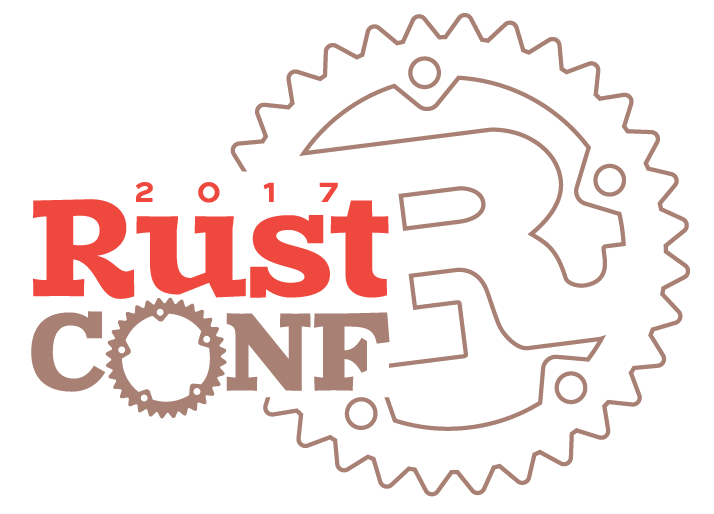Our Program



|
Opening KeynoteBy Aaron Turon , Carol Nichols , Niko MatsakisAaron, Carol, and Niko will deliver an update on the state of all things Rust. You don't want to miss it! |
|
|
|

|
Closing Keynote: Safe Systems Software and the Future of ComputingBy Joe Duffy
Someday in the future, all important systems software on the planet will be written in a safe programming language. The questions are, when, and how do we get there? |
|
|
|



|
Training SessionsBy Aaron Turon , Niko Matsakis , Steve KlabnikJoin us on Friday for beginner, intermediate, and advanced training sessions, plus a RustBridge workshop for people who are underrepresented in tech! More details will be found here as we finalize the sessions. Please note that you need to buy a separate ticket for these; the Saturday conference ticket does not include training. |
|
|
|

|
A Tale of Teaching RustBy Andrew BrinkerRust has a reputation of having a very steep learning curve, but is this reputation justified? In this talk I share my experiences teaching Rust to a group of 26 undergraduates as part of a class on programming language theory. None of the students knew Rust going in. Most knew only one language. I walk through the key concepts from Rust that programmers in all languages can use, and that language designers may want to steal, and I talk about how this class of fledgling programmers handled and understood those concepts, what they think of Rust now, and what all of this might mean for teaching Rust effectively in the future. |
|
|
|

|
Building RocketBy Sergio Benitez
Rocket is a web framework for Rust that delivers simplicity, reliability, and performance -- a rare combination. Rocket's ability to deliver in all three areas is largely enabled by Rust's code generation facilities. Based on developer input, Rocket generates code that eliminates boilerplate and leads to more robust, secure, and predictable web applications. |
|
|
|

|
Shipping a Solid Rust CrateBy Michael GattozziThere's a lot more to releasing a quality crate than just the code. Automating the testing to make sure nothing breaks, checking for test coverage, making sure there are examples, providing documentation are important in making your crate solid and easy to use. Beyond that how do you get people to actually use your crate? You might not know how to increase the visibility of your crate or of small things that can be done to get interest in your crate. This talk covers all of these aspects to help improve the quality of ones crate beyond the code itself. |
|
|
|

|
Menhir and Friends: the State of the Art of Parsing in RustBy Naomi TestardIn this talk we present Menhir, a very powerful LR parsers generator, and how to use it to write Rust parsers (and lexers). We also show some details of the internals of Menhir’s backend for Rust, as well as a short comparative survey of other similar parsing tools and techniques for Rust out here. |
|
|
|

|
Type System Tips for the Real WorldBy Sean Griffin
Have you ever looked at some of the more exotic capabilities of Rust's type system and wondered “why”? Why on earth would I ever want a zero sized type? How do I efficiently implement a deeply recursive type? Just what do monomorphization and type erasure actually mean? |
|
|
|

|
Improving Rust Performance Through Profiling and BenchmarkingBy Steve JensonThis talk will compare and contrast common industry tool support for profiling and debugging Rust applications. We'll discuss our experiences finding and fixing performance problems in a production Rust application. |
|
|
|


|
Fast, Safe, Pure-Rust Elliptic Curve CryptographyBy Isis Lovecruft , Henry De Valence
This talk discusses the design and implementation of |
|
|
|
